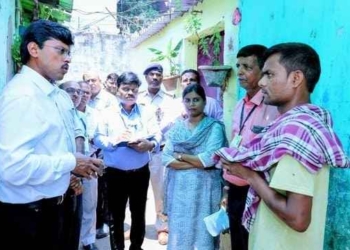Gujarat High Court
Ahmedabad: The Gujarat government on Friday told the High Court that the state’s Other Backward Classes (OBC) Commission will continue to function as a one-member commission. The state OBC commission was set up through a resolution in 1993. Though there was a proposal to appoint two additional members, the state government made it clear that it will not go ahead with it and said “the government has decided that the OBC commission will function as a one-member commission”.
The High Court had reprimanded the government
The reply comes nearly two weeks after the Gujarat High Court pulled up the state after it found that it had delayed the appointment of two members to the Other Backward Classes (OBC) Commission despite an assurance given to the court eight months ago. A division bench of Chief Justice Sunita Agarwal and Justice Pranav Trivedi is hearing a batch of PILs filed in 2018 seeking setting up of a permanent OBC commission and details of appointment of its members.
The government lawyer gave this information to the court
In the last hearing, government counsel GH Virk had told the court that the decision on the appointment was pending but the state OBC commission was in place and working. On Friday, Gujarat chief secretary Raj Kumar told the court through an affidavit that the commission has been functioning since 1993 with only its chairman and in future too it will continue to function as a one-member commission. Citing the formation of the National Backward Classes Commission, the chief justice asked Virk why the state cannot follow it.
The National Commission for Backward Classes consists of a chairperson, a vice-chairperson and three members. “Constitution of a multi-member commission would be in the right spirit. Having a body as opposed to one person makes a difference. It is a huge task. Why are the provisions of Article 338B of the Constitution (about establishment of NCBC) not being followed in Gujarat? Where is the exception?” the Chief Justice asked. Virk replied that the commission has been functioning with just one chairperson since 1993 and expert members are hired whenever required.
The Chief Justice made this remark
“So whatever you did in 1993, will you continue to follow it in 2024 and beyond? When and how, it is very subjective. One man is running an institution. When there is a provision for it in the Constitution, why an exception? You are saying we will continue with a one-man commission because there is no law. That is your answer,” the Chief Justice remarked. The bench then asked the petitioners to file their replies and scheduled the next hearing after two weeks. According to the government affidavit, the commission is currently headed by retired high court judge R P Dholaria.
input language










